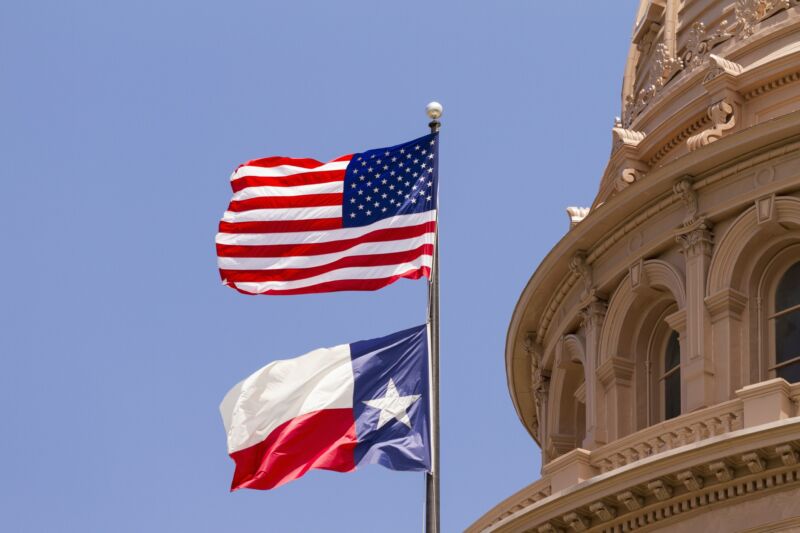
The US Supreme Court on Tuesday blocked the Texas law that prohibits social media companies from moderating content based on a user’s “viewpoint.” The Supreme Court order came about three weeks after the so-called “censorship” law was reinstated by the US Court of Appeals for the Fifth Circuit.
“The application to vacate stay presented to Justice [Samuel] Alito and by him referred to the Court is granted,” the ruling said. “The May 11, 2022 order of the United States Court of Appeals for the Fifth Circuit staying the district court’s preliminary injunction is vacated.”
It was a 5-4 decision with Justices Amy Coney Barrett, Stephen Breyer, Sonia Sotomayor, Brett Kavanaugh, and Chief Justice John Roberts voting to block the Texas law. Alito wrote a dissent that was joined by Justices Clarence Thomas and Neil Gorsuch. The ruling says separately that “Justice [Elena] Kagan would deny the application to vacate stay,” but Kagan did not join Alito’s dissent.
The Supreme Court ruling came in response to an emergency application from tech groups NetChoice and the Computer & Communications & Industry Association (CCIA). With the preliminary injunction reinstated, litigation will continue, and Texas cannot enforce the law unless it wins the case.
Tech group hails Supreme Court ruling
“This ruling means that private American companies will have an opportunity to be heard in court before they are forced to disseminate vile, abusive or extremist content under this Texas law. We appreciate the Supreme Court ensuring First Amendment protections, including the right not to be compelled to speak, will be upheld during the legal challenge to Texas’s social media law,” CCIA President Matt Schruers said.
“No online platform, website, or newspaper should be directed by government officials to carry certain speech. This has been a key tenet of our democracy for more than 200 years and the Supreme Court has upheld that,” Schruers also said.
The Texas law is labeled as “an act relating to censorship of or certain other interference with digital expression, including expression on social media platforms or through electronic mail messages.” The law says a “social media platform may not censor a user” based on the user’s “viewpoint” and defines “censor” as “block, ban, remove, deplatform, demonetize, de-boost, restrict, deny equal access or visibility to, or otherwise discriminate against expression.” The Texas attorney general or users can sue social media platforms that violate this ban and win injunctive relief and reimbursement of court costs, the law says.
In addition to being unconstitutional, the Texas law “would have been a disaster for social media users and for public discourse,” said John Bergmayer, legal director for consumer advocacy group Public Knowledge. “It would have ordered social media platforms to host and distribute horrific and distasteful content, and to turn a blind eye to hate, abuse, and coordinated misinformation campaigns. The main result of these policies would not be to enhance free speech, but to keep people from speaking by driving them away from toxic platforms.”
https://arstechnica.com/?p=1857391

